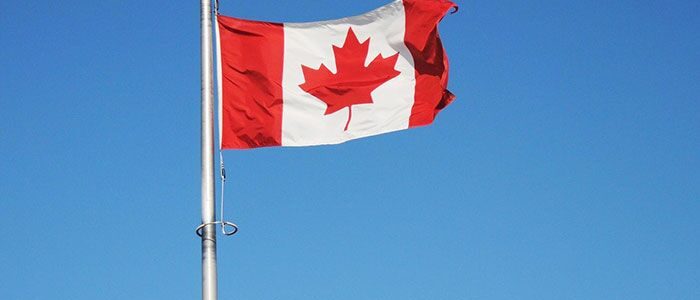Canadian citizenship is generally obtained by birth, as almost anyone who is born in Canada is automatically considered to be a citizen. Citizenship can also be obtained by descent to those born to Canadian parents outside of Canada, provided that they are the first generation born outside Canada. Permanent residents of Canada can also obtain citizenship by fulfilling a residency requirement of living in Canada for at least three out of five years. Once obtained, Canadian citizenship cannot be lost unless it was obtained by fraud. Canadian citizens enjoy the right to enter and leave Canada, to vote in elections, and to carry a Canadian passport, among other benefits.

CITIZENSHIP BY NATURALIZATION
Permanent residents of Canada may apply for Canadian citizenship after residing in Canada for a minimum legally-specified period of time. This manner of obtaining citizenship is referred to as “naturalization”. The children of naturalized Canadian citizens will also automatically obtain citizenship even if they are born outside of Canada.
Canada allows dual citizenship, so those permanent residents who obtain Canadian citizenship can also keep their original citizenship, provided that the laws of the other country also allow dual citizenship.

CITIZENSHIP BY DESCENT
Canadian citizenship is obtained automatically by being born in Canada. Citizenship can also be obtained by descent for those born outside of Canada where a parent is a first-generation Canadian citizen.
Canadian citizenship carries certain privileges that are not enjoyed by permanent residents, such as the right to vote in elections, and the ability to obtain a Canadian passport.

CANADIAN CITIZENSHIP APPLICATION REQUIREMENTS
Permanent residents of Canada who wish to apply for Canadian citizenship must first meet a residency requirement.
Live In Canada
The Citizenship Act requires that a permanent resident be physically present in Canada for at least three years in the five-year period before they apply. Time spent in Canada as a legal temporary resident prior to obtaining permanent residence will be counted as half time up to a maximum of 365 days within the five-year period.
File Your Taxes
Also, the permanent resident must have filed an income tax return in Canada for at least three years within the five-year period, if required to do so under the Income Tax Act.
English or French Language Test
Permanent residents between the ages of 18 and 54 must also show that they have an adequate understanding of either English or French language, which are the official languages of Canada.
Proof of language ability is provided through the inclusion of a language test score in the citizenship application. The tests accepted by the citizenship authorities are the IELTS and CELPIP for the English language, and the TEF for the French language. The scores must show language ability at or above benchmark 4 of the Canadian Language Benchmarks for speaking and listening. Alternatively, the applicant can provide proof of the completion of a post-secondary educational program that was taught in the English or French language or can provide proof of English or French as a Second Language training in Canada, indicating that the benchmark 4 ability was achieved.
Take The Canadian Citizenship Test
Filing a citizenship application will require you to attend and pass a Citizenship test. A permanent resident applying for citizenship who is under the age of 55 or over the age of 17 must show adequate knowledge of Canada.
Download & Study The Booklet
The Canadian Citizenship test is based on the information in a government booklet called Discover Canada: The Rights and Responsibilities of Citizenship. This booklet will be provided to each citizenship applicant in advance of the test. It contains brief introductory information about the history of Canada and its social and political structure, etc.
The Test Format
The test will be administered in writing and has 20 multiple-choice questions. The pass mark is 15 correct answers. If the applicant fails the test, he or she will be given an opportunity to rewrite it. If the applicant fails again, they will be given an interview with a citizenship officer who will conduct the test once more orally.


THE CITIZENSHIP CEREMONY
Those who have satisfied the citizenship authorities that they meet the residency requirement and have passed the language and knowledge tests will be scheduled for a citizenship ceremony where they will be granted Canadian citizenship.
As part of the ceremony, the applicant will be required to swear an oath of loyalty to Canada. The new citizen will then be given a card proving their citizenship status. This card can then be used to apply for a Canadian passport.
BEING BORN IN CANADA
Canadian citizenship is obtained automatically by being born in Canada. Citizenship can also be obtained by descent for children born outside of Canada where a parent is a first-generation Canadian citizen, meaning that the parent was either born in Canada or naturalized as a Canadian citizen.
Changes to Citizenship Rule as of 2009
In 2009, the rules for Canadian citizenship changed for children of Canadians born outside of Canada. Prior to April 17, 2009, children born outside of Canada to a Canadian citizen parent were automatically Canadian citizens even if they were the second or more generation born abroad.
As of April 17, 2009, the rules changed to restrict citizenship by descent to the first generation born abroad. As a result, if you were born outside of Canada to a Canadian parent, you will NOT be considered Canadian if your Canadian parent was also born outside Canada to a Canadian parent, making you the second or more generation born outside of Canada.
The Exception to Citizenship Rule
There is an exception to the first-generation rule if your Canadian parent or grandparent was employed in certain situations. If you were born outside of Canada as a second or later generation, the first-generation rule will not apply to you if:
- your Canadian parent was employed outside Canada when you were born
- with the Canadian Armed Forces
- with the federal public administration
- with the public service of a province or territory
If a child born to a Canadian parent isn’t eligible for citizenship by descent due to the first-generation limit, the Canadian parent can potentially sponsor the child for permanent residence in Canada if the child is under the age of 22 and unmarried.


RECEIVING A FAIRNESS LETTER
Where the citizenship authorities have concerns with a citizenship application, they may send a letter to the applicant advising them of the concerns and giving them a chance to reply before a decision is made in the case. This is called a “fairness letter.” If you receive a procedural fairness letter in Ontario, it’s important to submit a detailed and accurate report that summarizes all the critical arguments of your case. A strong and well-thought out argument can lead to a more favourable decision by IRCC. Many people omit to seek legal help when responding to a procedural fairness letter IRCC. Applicants who end up submitting a weak response often face a refusal.
Proof of Residency
In the context of citizenship applications, the usual reason why an applicant will receive a fairness letter is because the citizenship authorities have concerns that the applicant is not meeting the residency requirement to qualify for citizenship. This is often the case where the applicant has an extensive travel history but is unable to provide evidence substantiating when they actually traveled. In these circumstances the citizenship authorities may request additional evidence to prove that the applicant was actually in Canada during the periods they claim in their application.
Misrepresentation
If you receive a fairness letter alleging misrepresentation on your part, it is important to fully take advantage of the opportunity you receive to respond to the immigration officer’s concerns. Misrepresentation is a serious allegation that can result in a citizenship applicant being refused.
CANADIAN CITIZENSHIP INTERVIEWS
In cases where additional information is requested but after considering the additional information the citizenship authorities are still uncertain as to whether the applicant is meeting the residency requirement, they will then convoke the applicant for an interview with a Citizenship Judge.
The Judge will interview the applicant about any concerns related to his or her absences from Canada and the documentation used as evidence, and based on this will make a final decision as to whether citizenship should be granted.


CANADIAN CITIZENSHIP APPLICATIONS ON HUMANITARIAN & COMPASSIONATE GROUNDS
The Minister of Citizenship and Immigration has the discretion to grant citizenship to alleviate cases of special and unusual hardship, or to reward services of exceptional value to Canada. Statelessness has been added as a stand-alone ground that can be a basis for a discretionary grant of citizenship.
The revised Act also requires that the citizenship authorities take into consideration reasonable measures to accommodate a person who is disabled.
These provisions can be invoked in situations where a citizenship application is unable to meet all of the requirements for citizenship due to special circumstances where it would result in a hardship to the applicant if citizenship is not granted, or where an applicant is stateless or disabled.
